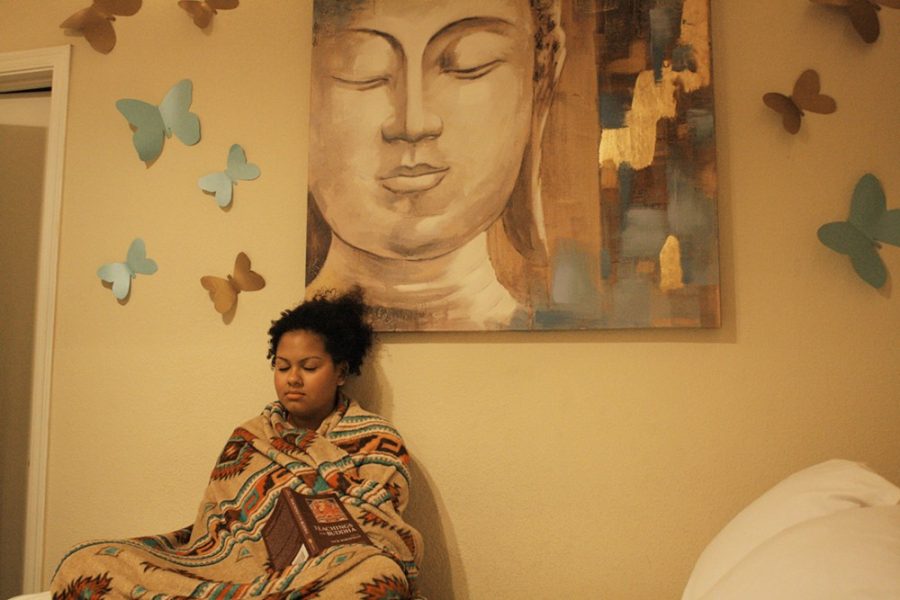Mindful meditation courses have been offered on campuses across the nation since the ’70s. However, it’s not until recently that the trend has really gained momentum. The story remains the same: College students everywhere strive to balance work and play, a feat that is not easily achieved.
Effective and Engaged: Mindful Meditation to Strengthen Focus and Tame Stress focuses on the relationship a person shares with stress and how to manage everyday pressures through biofeedback, such as controlled breathing and heart rate. The UA opened the class to students and faculty as of Feb. 3, and it is geared toward eliminating day-to-day stress, which many on campus struggle with.
The on-campus meditation sessions are much more than outlets for relaxation, said Carol Stewart, assistant director of continuing and professional education and former student of Effective and Engaged.
“It’s important to note that our class is taught by a physiologist and involves biofeedback and lecture,” Stewart said. “It is not simply a class where people come to relax but, rather, a class where people can learn why stress is problematic and why relaxation and breathing are helpful.”
As New Age as it may seem, meditation and classes such as the one Stewart promotes can have a significant and sweeping role in a student’s life.
According to research published in the journal Mindfulness, practicing meditation before class can lead to better focus and better grades. In the study, professor Robert Youmans of George Mason University and Jared Ramsburg, a doctoral student of the University of Illinois, tested whether meditation worked to help students focus and better retain information. Research conducted on randomly selected students -— all of unique religions, creeds and upbringings — indicated that those who meditated before lectures scored higher on subsequent testing than their peers who did not meditate.
The course is taught by Ann Baldwin, professor of physiology and psychology. Effective and Engaged uses both science and spiritual practices to optimize student productivity and eliminate stress.
“We set up the class because we knew of Baldwin’s research and were intrigued,” Stewart said. “As you probably know, mindfulness is the current trend in looking at lifestyles, so we wanted to take that and put it into a very real, useful context. Baldwin’s class not only examines what mindfulness is and how being mindful can lead to a more engaged life, but it also teaches how to achieve that through meditation.”
Adapted for improving overall performance, Effective and Engaged is a six-week course that deals in handling emotions that can overwhelm rationality in times of stress. The class explores topics such as response flexibility, calming anxiety and creating structural changes in the brain, and it works to broaden students’ perspectives.
“I think anyone would find learning how to practice mindful meditation extremely useful in helping them focus — whether on homework, research or a task at work,” Stewart said. “Learning this practice is tremendously helpful in keeping us engaged with life and stressing less than we otherwise might.”
Though statistics on meditation are difficult to come by, there exist several studies in the past decade that provide some profound evidence in favor of meditation. The Pew Forum on Religion & Public Life’s 2008 “U.S. Religious Landscape Survey” found that 39 percent of surveyed adults claim to meditate weekly. Meanwhile, a 2007 study by the National Institutes of Health found that 9.4 percent of nearly 24,000 respondents had meditated in the past 12 months, a 1.8 percent increase from the past five years.
Set to proceed through March 10, Effective and Engaged classes remain open for enrollment to anyone interested.
_______________
Follow Elise McClain on Twitter.



